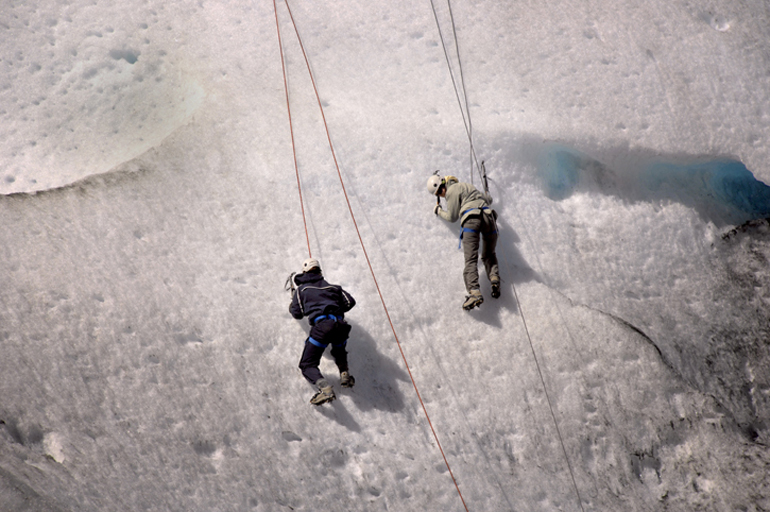
We were turning into geezers. Ratty
beards sprouted. Fingers swelled.
We got gaseous. Why do people put themselves through this wringer?
Tom Dunkel
A climbing expedition goes through various stages, a sort of agonal descent into squalor. At the end of day one you feel grubby, but with a touch of machismo (I can do this!). On the second day you are grubbier and getting grumpy. By the end of day three you don't give a damn. It's even beginning to seem normal. You have left the real world behind.
Appetite is the same. On the first night mac and cheese never tasted so good. On the second night you are starving but wish there was something to eat besides mac and cheese. On the third night mac and cheese has all the mouth-watering appeal of road kill, but you force it down anyway. What else is there?
Mountaineering is an affliction of sorts, cause and cure unknown. At some point all climbing expeditions take on remarkably similar attributes: crowded tents, petty bickering, foul smelling mates, bad food, filth, fatigue, headaches, altitude sickness, sundry bowel complaints (too much, not enough), extreme cold, and no sanitation. Base camp is like the winter of 1778, Valley Forge. Great for war stories, if you live to tell them.
Distance takes on a new meaning in the mountains. A mile is considerable, two inconceivable. "Over there" is a long way when you are on foot in the mountains. Life is simple, elemental even, and time loses meaning. At night you toss and turn in a vain effort to sleep. In the daytime you go higher, a mindless obsession with pushing upward. But there is no reason to rush because you don't seem to go anywhere anyway. No matter how high you climb things look the same-rock and ice, ice and rock. Where you are today is where you were yesterday and where you are headed tomorrow. For all you know you are going around in circles. It's all rather agreeable.